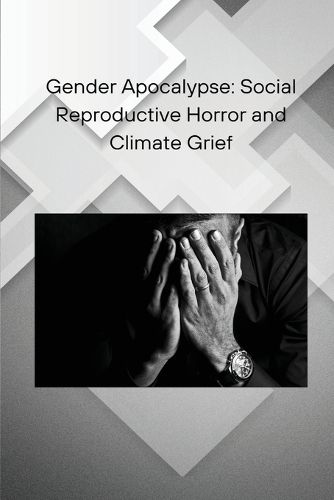Readings Newsletter
Become a Readings Member to make your shopping experience even easier.
Sign in or sign up for free!
You’re not far away from qualifying for FREE standard shipping within Australia
You’ve qualified for FREE standard shipping within Australia
The cart is loading…






This title is printed to order. This book may have been self-published. If so, we cannot guarantee the quality of the content. In the main most books will have gone through the editing process however some may not. We therefore suggest that you be aware of this before ordering this book. If in doubt check either the author or publisher’s details as we are unable to accept any returns unless they are faulty. Please contact us if you have any questions.
This dissertation argues that fascism fixes on gender and particularly on transgender
people because of the special role that gender plays in social reproduction. Chapter one
demonstrates the problems with thinking of gender as an ahistorical and stable ontological
category. Chapter two argues for a rejection of pathological models of understanding gender
difference and looks at the US legislative pushes targeting transgender subjects. Chapter three
argues that celebratory gender practices like the gender reveal operate on a kind of gender
nationalism, and that the violent accidents they produce are secondary to the violence of gender
in general. Chapter four shifts focus from gender to the apocalyptic and reads apocalyptic
narrative as a type of instructive text. I argue that since gender happens historically, it is
currently happening in an apocalyptic context: whether it be capitalism or life on earth, our
ongoing environmental catastrophe increasingly insists that something must go. Because fascism
rises in defense of capitalism, fascists insist that transgender people are that "something."
Transgender people exert agency in how our social being unfolds. Activities, events, and
forms of life that destabilize the appearance that capitalist social relations are determined by
stable and eternal constitutive categories pose a threat to capitalism. I argue that we embrace our
capacity to threaten a profoundly destructive way of relating to others and to our world, and that
transgender ways of living and knowing can help us negotiate the apocalyptic present and form
more intentional relationships with the creative and social processes of fashioning a self.
$9.00 standard shipping within Australia
FREE standard shipping within Australia for orders over $100.00
Express & International shipping calculated at checkout
This title is printed to order. This book may have been self-published. If so, we cannot guarantee the quality of the content. In the main most books will have gone through the editing process however some may not. We therefore suggest that you be aware of this before ordering this book. If in doubt check either the author or publisher’s details as we are unable to accept any returns unless they are faulty. Please contact us if you have any questions.
This dissertation argues that fascism fixes on gender and particularly on transgender
people because of the special role that gender plays in social reproduction. Chapter one
demonstrates the problems with thinking of gender as an ahistorical and stable ontological
category. Chapter two argues for a rejection of pathological models of understanding gender
difference and looks at the US legislative pushes targeting transgender subjects. Chapter three
argues that celebratory gender practices like the gender reveal operate on a kind of gender
nationalism, and that the violent accidents they produce are secondary to the violence of gender
in general. Chapter four shifts focus from gender to the apocalyptic and reads apocalyptic
narrative as a type of instructive text. I argue that since gender happens historically, it is
currently happening in an apocalyptic context: whether it be capitalism or life on earth, our
ongoing environmental catastrophe increasingly insists that something must go. Because fascism
rises in defense of capitalism, fascists insist that transgender people are that "something."
Transgender people exert agency in how our social being unfolds. Activities, events, and
forms of life that destabilize the appearance that capitalist social relations are determined by
stable and eternal constitutive categories pose a threat to capitalism. I argue that we embrace our
capacity to threaten a profoundly destructive way of relating to others and to our world, and that
transgender ways of living and knowing can help us negotiate the apocalyptic present and form
more intentional relationships with the creative and social processes of fashioning a self.